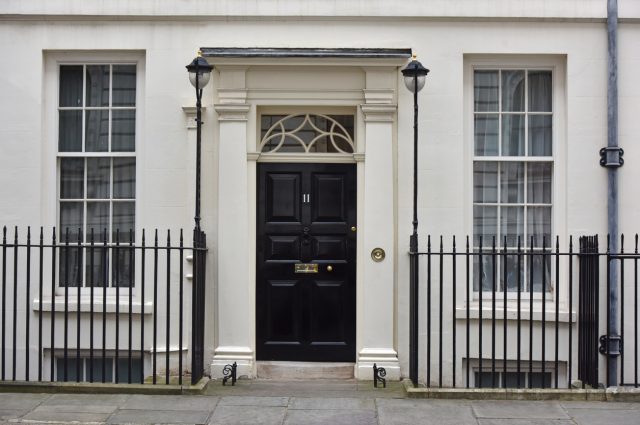UK alcohol industry reacts to Spring Statement 2025
Sector leaders warn of lost jobs, stalled growth and missed opportunities following Chancellor’s economic update.

In her Spring Statement, Chancellor Rachel Reeves delivered a resolute defence of her government’s fiscal strategy, doubling down on the “stability rule” and “investment rule” first set out in the autumn. Despite global uncertainty, the Chancellor confirmed the UK will hit both targets two years early — balancing the books by 2029-30 and reducing net financial debt as a percentage of GDP.
Public spending was reined in further, with day-to-day departmental budgets set to grow slightly slower than projected last autumn — 1.2% above inflation versus 1.3%. New investments were announced in defence, housing and AI-driven public sector reform, while a £3.5bn cut in government operational costs by the end of the decade added to the tone of frugality.
But growth projections were halved, down to just 1% for 2025, and there was no mention of alcohol, hospitality or agri-food sectors in the Government’s industrial strategy — leaving key voices across the drinks and hospitality landscape deeply dismayed.
British wine
For the burgeoning English and Welsh wine sector, the omission was particularly hard to swallow.
“We are disappointed in the halving of growth projections in the Spring Statement and what this means for consumer confidence,” said Nicola Bates, chief executive of WineGB.
While the Chancellor praised innovation and high-growth sectors, Bates noted a glaring absence: “We remain concerned about agriculture and agri-food beverages being omitted from the industrial strategy, and potentially what this means for the Great British domestic wine sector.”
As one of the UK’s fastest-growing agricultural industries, the domestic wine sector had hoped for renewed investment in the Sustainable Farming Incentive, export support and production infrastructure. Instead, said Bates, “This continued absence in funding stalls our growth.”
Pubs and breweries
From the beer taps to the brewhouse, there was no sugar-coating the reaction from the British Beer and Pub Association.
“The Spring Statement was the perfect chance to sow the seeds of growth but Government missed the opportunity,” said Emma McClarkin, chief executive. “We can now expect to see prices rise, jobs at risk and growth downgraded.”
With new costs arriving in April, the BBPA estimates the sector will shoulder an additional £70 million each month, the equivalent of 5,700 jobs lost every month. “We can expect to see pubs close at a faster rate which will risk growth and jobs and hurt the communities who rely on them.”
Partner Content
McClarkin called for urgent reform: “Time is of the essence… the Government must reform business rates, deregulate, review the new chaotic and punishing EPR fees, and phase in employment costs.”
Hospitality
Hospitality chiefs echoed the sentiment, calling the statement a missed opportunity to avert an April tax surge.
“Today’s statement was yet another missed opportunity to avoid an April cliff edge,” said Kate Nicholls, chief executive of UKHospitality. She warned that failure to raise the employer NIC threshold would “force businesses to freeze recruitment, reduce hours available for staff and reduce employment levels in the very sectors the Government needs to achieve its goal to get people off welfare.”
Nicholls argued the sector’s role in recovery had been proven after the financial crisis and pandemic. “There is still time for the Chancellor to act… now is the time to back hospitality.”
Night-time economy
But no part of the industry expressed quite the same fury as the Night Time Industries Association, whose chief executive Michael Kill labelled the Spring Statement “a reckless dereliction of duty”.
“Rather than seizing the opportunity to implement critical long-term reforms, this Statement signals yet another nail in the coffin for an industry already pushed to the brink.”
Kill accused the Government of “a fundamental disregard for the millions of workers and entrepreneurs who fuel the UK’s cultural and economic dynamism” and called the Chancellor’s inaction “not just negligent — it is a direct attack on the viability of an industry that contributes billions to the UK economy.”
He demanded “immediate and substantial intervention” before the industry is “systematically dismantled by political negligence”.
Outlook
While the Chancellor’s Statement may provide comfort to markets and deliver improved forecasts for inflation and debt, the sentiment across Britain’s alcohol and hospitality industries is one of profound disillusionment.
In a sector already burdened with post-pandemic debt, regulatory complexity and soaring energy prices, stability alone is no longer enough. The consensus is clear: if the Spring Statement was meant to plant the seeds of long-term growth, this government has left a critical part of Britain’s cultural and economic identity out in the cold.
Related news
‘This Budget is a hammer blow’ as UK alcohol duty rises with inflation
Whisky industry urges duty freeze as tax tops £12 a bottle
Spirits duty freeze a 'proven, practical step' to ease pressure on households and public finances




